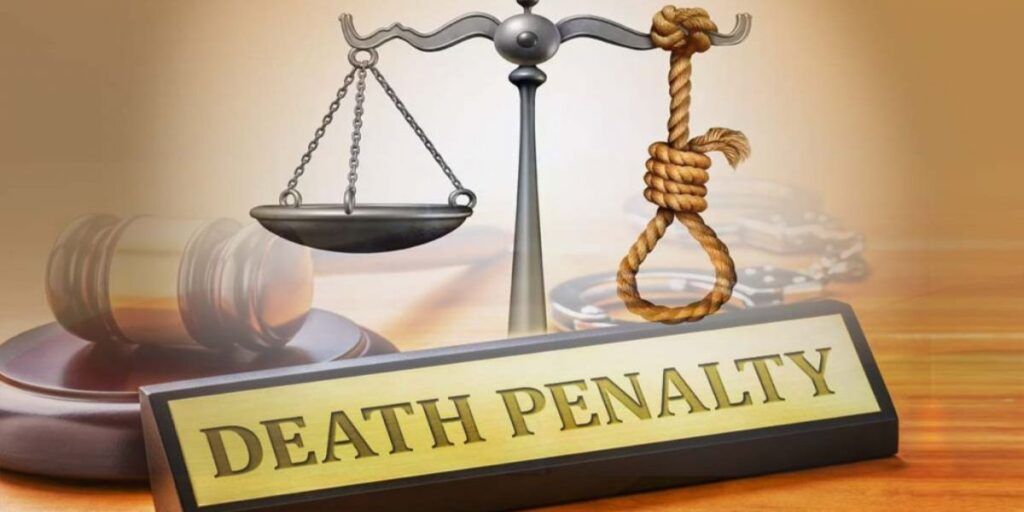In North Carolina, the debate surrounding the death penalty continues to stir passionate arguments on both sides. For some, it represents the ultimate form of justice for the most heinous crimes. For others, it’s a relic of a justice system that too often fails, disproportionately affects marginalized communities, and risks executing the innocent.
With no executions carried out since 2006, the Tar Heel State remains caught between law and practice, raising a critical question: Should the death penalty still exist in North Carolina?
A Legal Sentence, But Rarely Carried Out
North Carolina still maintains capital punishment as a legal sentence, but the reality is that no execution has occurred in nearly two decades. The state has about 135 inmates currently on death row, one of the largest populations in the country, yet the state hasn’t scheduled a new execution in years.
The halt stems from legal challenges related to the fairness of trials, racial bias, and the method of execution itself. Litigation over the use of lethal injection and the failure to provide adequate legal counsel in some cases has placed the entire process on hold.
Arguments in Favor of the Death Penalty
Supporters argue that the death penalty serves as a critical deterrent and a form of retributive justice. For families of murder victims, an execution may bring a sense of closure and finality.
Proponents also claim that certain crimes are so heinous that the only fitting punishment is death. High-profile cases involving mass shootings, child murders, or particularly brutal killings often reignite public calls for the death penalty, especially when life imprisonment feels too lenient to some.
They also argue that advancements in forensic science, including DNA testing, have made wrongful convictions less likely.
Arguments Against the Death Penalty
Opponents believe the death penalty is fundamentally flawed. One major concern is the potential for wrongful convictions. Across the country, more than 190 people have been exonerated from death row since 1973 — including some in North Carolina. Critics say this error rate is unacceptable when a human life is on the line.
Others point to racial and socioeconomic bias in capital sentencing. Studies have shown that defendants of color, especially when the victim is white, are more likely to receive the death penalty. Wealthier defendants who can afford better legal defense often avoid death row, while poor defendants may be stuck with overworked public defenders.
The cost is another concern. Death penalty cases often take decades of appeals, requiring significantly more resources than non-capital cases. Some argue that those funds could be better used to support victims’ families or improve public safety measures.
Where Public Opinion Stands
Public opinion in North Carolina is shifting. While a majority once supported the death penalty, recent polls suggest that support is declining, especially when life without parole is offered as an alternative. A growing number of North Carolinians — including judges, prosecutors, and former supporters — are questioning whether capital punishment is effective, fair, or even necessary.
Faith leaders, civil rights organizations, and criminal justice reform groups have also increased pressure on lawmakers to repeal the law altogether.
The Racial Justice Act and Its Repeal
North Carolina briefly enacted the Racial Justice Act in 2009, allowing death row inmates to challenge their sentences if they could prove racial bias played a role. However, the law was repealed in 2013, and efforts to reinstate it have failed. Critics say this repeal removed a vital safeguard against discriminatory sentencing.
In 2020, the North Carolina Supreme Court ruled that those who had already filed claims under the act before its repeal could proceed, giving some death row inmates another chance to challenge their sentences.
Looking Ahead: Reform or Abolition?
North Carolina stands at a crossroads. While executions have halted, the legal machinery of capital punishment remains intact. Lawmakers have not signaled any major movement toward repeal, but growing calls for reform continue.
Whether the death penalty will be revived, reformed, or repealed depends on future court rulings, political will, and continued public pressure.
Final Thoughts
North Carolina’s death penalty system presents a complex moral and legal dilemma. While it remains on the books, the long-standing pause on executions signals growing discomfort with its application. Is capital punishment a tool of justice, or an outdated system riddled with flaws? Until lawmakers take definitive action, the debate will continue — raising difficult questions about justice, fairness, and the value of human life in the modern age.





More Stories
North Carolina Hasn’t Executed Anyone in Nearly 20 Years – Should It Ever Again?
North Carolina Hasn’t Executed Anyone in Nearly 20 Years – Should It Ever Again?
North Carolina Hasn’t Executed Anyone in Nearly 20 Years – Should It Ever Again?